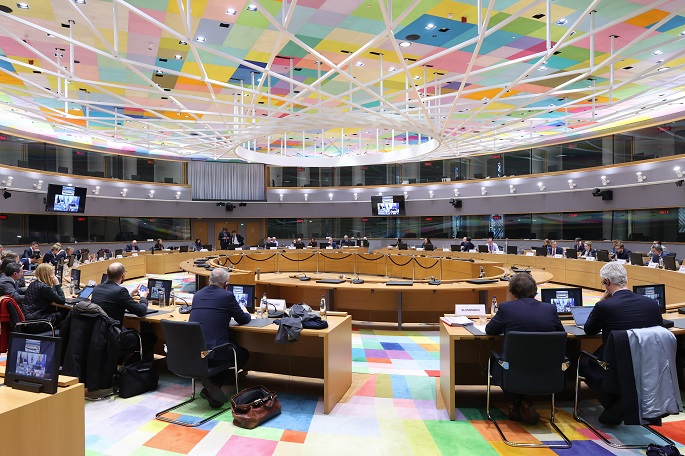EU countries agree on new debt rules after Franco-German quarrel
Published : 10 Feb 2024, 20:57
Negotiators from the European Parliament and European Union member states have agreed on reforms to the bloc's debt rules after long negotiations.
Belgian Finance Minister Vincent Van Peteghem said that the new rules "will safeguard balanced and sustainable public finances, strengthen the focus on structural reforms, and foster investments, growth and job creation throughout the EU."
Belgium currently holds the EU's rotating presidency.
The aim now was "swift implementation," he said, according to an EU Council press release published in the early hours of Saturday.
The reforms are designed to better consider the individual fiscal situation of each EU country and allow highly-indebted member states more flexibility to reduce debt and budget defecits.
At the same time, there are to be clear minimum requirement for the reduction of debt ratios for highly indebted countries.
Although finance ministers from EU countries had reached an agreement at the end of last year, it still needed to be negotiated with the European Parliament.
Securing approval proved controversial, especially from Germany and France.
The agreement that has now been reached was based on reform proposals from the European Commission, which had been criticized as too lax, particularly by the German government.
After months of negotiations, EU member states agreed on a number of changes, including the minimum requirements for the reduction of debt ratios.
In principle, the criteria of the previous regime remain in place.
Current EU current government debt rules limit total borrowing to no more than 60% of a country's total gross domestic product (GDP) and requires that annual budget deficits remain below 3% of GDP.
In the event of a breach of the 3% deficit limit, states are still required to achieve an annual structural improvement of at least 0.5% of GDP.
However, the new rules ensure that the European Commission - which is responsible for supervising compliance - can take an increase in interest payments into account when calculating what a state must pay back during a transitional period.
EU finance ministers had been at loggerheads over the proposed reforms for months, especially Paris and Berlin, where an agreement without the two economic heavyweights was considered almost possible.
German Finance Minister Christian Lindner prioritized the standardized minimum debt and deficit reduction targets for highly indebted countries using the euro currency, which France opposed.
French Finance Minister Bruno Le Maire pushed for changes to ensure public investment and structural reforms for modernizing an economy were taken into account when calculating debt reduction targets.
The rules have been suspended until 2024 due to the coronavirus pandemic and the fallout from Russia's invasion of Ukraine, both crises that created major new spending priorities for EU governments.
A return to the existing debt regime was viewed as a threat to the EU's economic recovery as it would force many countries to make deep budget cuts.
The rules, moreover, were frequently disregarded even before the pandemic, including by Germany.


